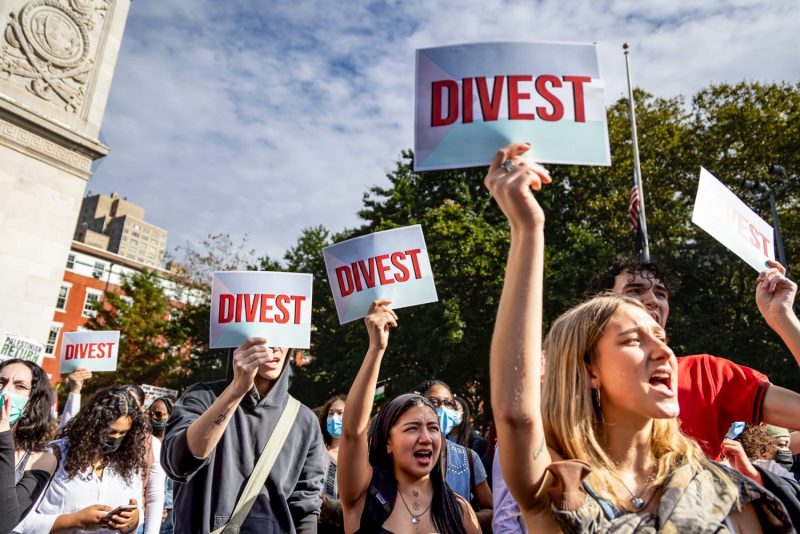College Protesters Want Their Schools to Divest from Ties to Israel: Here’s What That Means
The call for colleges and universities to divest from ties to Israel has been gaining traction among student protesters across campuses in the United States. Proponents argue that divestment is a powerful tool to put pressure on Israel to end its occupation of Palestinian territories and to hold the country accountable for its treatment of Palestinians.
Divestment is a form of economic activism that involves selling off investments in companies, organizations, or countries that are deemed to be unethical or engaging in human rights abuses. In the case of Israel, proponents of divestment argue that the country’s policies towards Palestinians violate international law and human rights norms, and therefore, institutions should not be supporting these actions through their investments.
The movement to divest from Israel has sparked heated debates and discussions on college campuses, with supporters and opponents presenting differing arguments on the efficacy and ethics of such a move. Proponents of divestment often point to successful divestment campaigns in the past, such as the anti-apartheid movement in South Africa, as evidence that economic pressure can bring about political change.
On the other hand, opponents of divestment argue that it is a simplistic and ineffective approach to addressing complex geopolitical conflicts. They point out that divestment can have unintended consequences, such as harming innocent civilians or undermining dialogue and cooperation between conflicting parties.
In response to the calls for divestment, some colleges and universities have taken steps to reconsider their investment policies and relationships with Israel. However, many institutions have also pushed back against these demands, citing concerns about academic freedom, the politicization of university investments, and the need to remain neutral on contentious political issues.
Ultimately, the debate over divestment from Israel raises important questions about the role of universities in promoting social justice and human rights. Should colleges and universities use their financial power to influence political outcomes and hold governments accountable for their actions? Or should they prioritize academic freedom and impartiality over taking a stance on controversial issues?
As the movement for divestment from Israel continues to grow, it is clear that this issue will remain a contentious and divisive topic on college campuses for the foreseeable future. Both supporters and opponents of divestment will need to engage in constructive dialogue and debate to find common ground and work towards a more just and peaceful resolution to the Israeli-Palestinian conflict.

